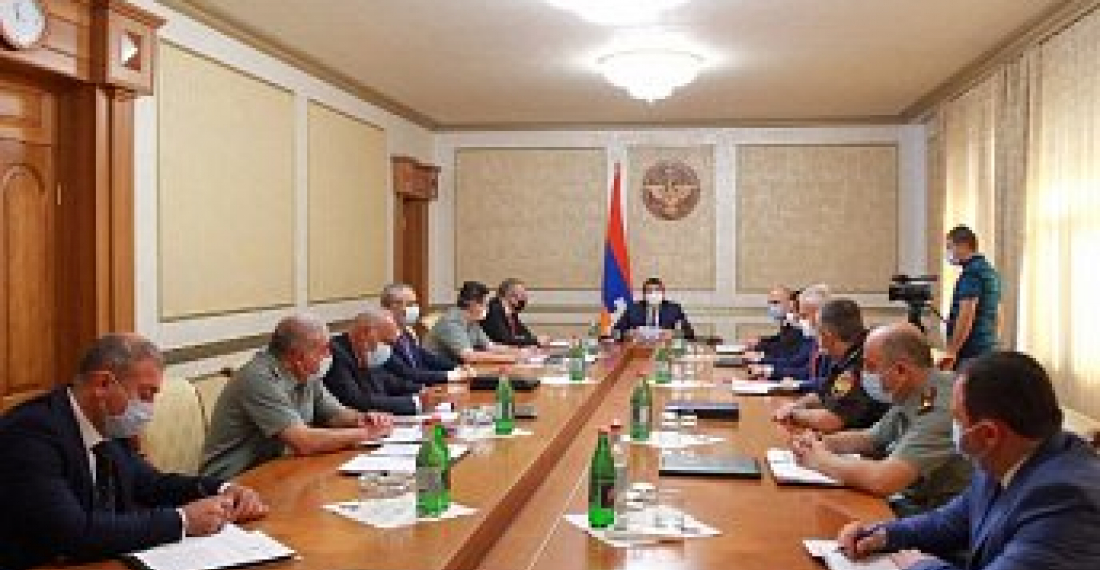The de facto president of the self-declared Nagorno-Karabakh Republic (NKR), Arayik Harutyunyan has outlined his red lines for a negotiations for the resolution of the conflict which has been ongoing for decades. Speaking today at the first meeting of the Security Council of the self-declared republic he said that he was ready for a peaceful solution, but this needed to be based on seven principles, which he outlined, namely
- NKR should fully participate in all stages of a peaceful and final settlement;
- Sovereignty, independence , the territorial integrity and security of NKR cannot under any circumstances be endangered or become a subject of bargaining;
- without recognition of the right of the people of NKR to self-determination, substantive discussions between the parties are impossible;
- the exclusion of attempts to settle the conflict by force or the threat of using force, since the Armenian and Azerbaijani peoples deserve to live in peace. Otherwise, NKR is ready to give a disproportionate response if attacked by Azerbaijan and shift military action to Azerbaijan's territory;
- unilateral or disproportionate concessions on the part of the NKR authorities are excluded;
- the rights of (Armenian) refugees and internally displaced persons should be taken into account on an equal basis with the rights of Azerbaijani refugees and internally displaced persons;
- the international community (first of all, the OSCE and the co-chairing countries) should exclude the violation and limitation of the rights of NKR due to the confrontation and the international status of the republic, including the possibility of its participation in international humanitarian programs.
Armenian sources often refer to the Nagorno-Karabakh Republic as Artsakh.
The Nagorno-Karabakh Republic (Artsakh) is not recognised by any country, but has existed de facto since 1994 with the support of Armenia. Arayik Harutyunyan has been president of the de facto republic since May 2020. Azerbaijan insists that Nagorno-Karabakh is a part of Azerbaijan under international law.
Source: commonspace.eu with Armenian media.






